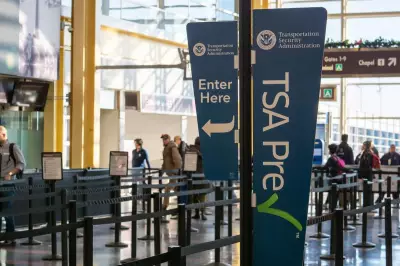
A prominent business leader has launched a scathing attack on Britain's sick note culture, describing the current system as fundamentally broken and in desperate need of reform.
Sir Charlie Mayfield, the former chairman of the John Lewis Partnership, has warned that the existing process for issuing sick notes is actively pushing people out of work and placing unsustainable pressure on both employers and the National Health Service.
The Burden on GPs and Patients
Mayfield's review highlights the staggering reality that over 10 million GP appointments annually are consumed by the administration of fit notes. This represents a massive drain on medical resources that could be better directed toward actual patient care.
"The system isn't working for anyone," Mayfield stated. "It's creating unnecessary barriers between people and work, while simultaneously overwhelming our healthcare professionals with paperwork."
A Call for Digital Transformation
The proposed solution involves a significant shift toward digital assessment tools that could handle many fit note requests without requiring a GP appointment. This would free up precious medical resources while providing a more efficient service for those needing certification.
Mayfield's recommendations include:
- Developing online platforms for initial fit note assessments
- Reducing the automatic four-week certification period
- Creating clearer pathways for workplace support and adjustments
- Empowering employers to play a more active role in employee wellbeing
Rising Economic Concerns
The intervention comes amid growing alarm about the sharp increase in long-term sickness across the UK workforce. Recent data shows economic inactivity due to health issues has reached concerning levels, with mental health conditions and musculoskeletal problems being primary drivers.
Critics of the current system argue it creates a perverse incentive where individuals feel compelled to prove they're unwell rather than exploring what work they might be capable of performing with appropriate support.
The government is now facing mounting pressure to implement meaningful reforms that balance the needs of genuinely ill workers with the economic necessity of keeping people connected to the workforce.






